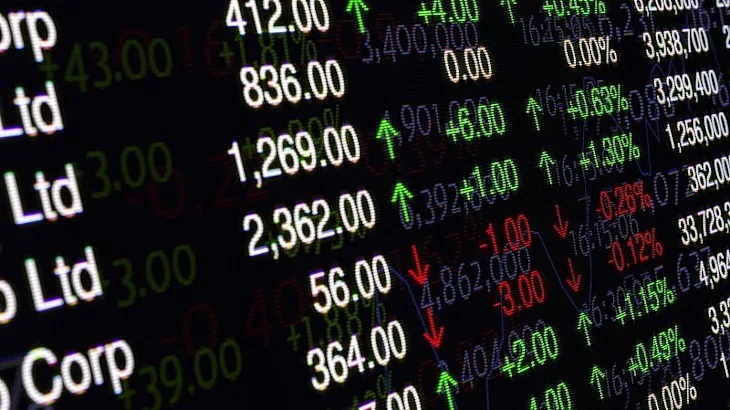
European markets dip as Trump vows to respond to EU’s counter tariffs
European markets opened lacklustre as global tariff tensions heated up, following US President Donald Trump’s vow to react to EU counter tariffs. The European response came after the US placed 25% levies on aluminium and steel imports. "Whatever they charge us with, we're charging them," Trump said in relation to EU countermeasures.
Britain’s FTSE 100 dropped 0.1% on Thursday morning, with Germany’s DAX index also falling 0.4%. France’s CAC 40 index slid 0.3% on Thursday morning, whereas the STOXX 600 inched lower 0.1%.
All of these indexes then ticked up marginally later in the morning.
Canada also revealed on Wednesday that it would be imposing counter tariffs on US goods worth approximately C$30 billion (€19.2bn). Ontario Premier Doug Ford had also suggested a 25% surcharge on electricity sent to US consumers, although he retracted this on Tuesday. Trump had said he would double planned tariffs on Canadian steel and aluminium imports to 50% on Tuesday - another proposal that has been walked back.
“A rather tame US inflation report lent some support to markets yesterday, but with investors' concerns focused on the coming impacts of US policy uncertainty and not past inflation, risk assets are back under pressure this morning,” Kyle Chapman, FX markets analyst at Ballinger Group, said.
Investors are also looking forward to the US Federal Reserve’s policy meeting next week, which is expected to shed more light on when future rate cuts may happen.
Asia-Pacific markets overnight
Asia-Pacific stocks tumbled overnight as slowing inflation in the US failed to reassure investors, with worries of a potential US recession still looming.
Japan’s benchmark Nikkei 225 closed around 0.1% lower on Thursday, at 36,790.03, trading close to six-month lows.
China’s Shanghai Composite Index slid 0.4% on Thursday, closing at 3,358.7, falling for the second session, mainly dragged down by AI-related and technology stocks. UBS recently slashed China’s technology sector rating from attractive to neutral. This was mainly because of rally-driven re-evaluation, uncertainty over future growth, as well as tariff risks.
Similarly, Hong Kong’s Hang Seng index also closed around 0.6% lower, at 23,462.6.
Australia’s S&P/ASX 200 also fell roughly 0.5% to 7.749.1 on Thursday, while South Korea’s Kospi was down less than 0.1% at 2,573.6.
Related
US markets, closing prices on Wednesday
The S&P 500 closed 0.5% higher on Wednesday, boosted by a better than expected February inflation report, which showed that price pressures rose 2.8% on an annual basis last month. This was slightly below analyst expectations of 2.9%, as well as a step down from January’s 3%.